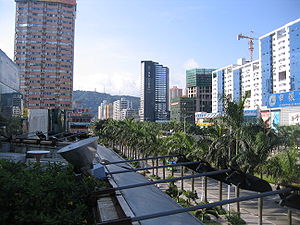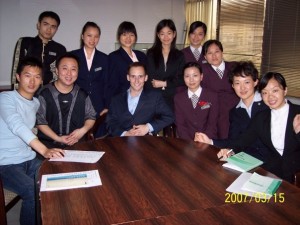What is life truly like in North Korea?
We often default our answers to “full of misery and poverty,” or at least I usually do. It would be a surprise to see smiles in a place many Westerners consider to be a cold, unforgiving dungeon. But in this place which seems to be sealed off from the rest of Asia, and the world, glimpses of internationalism can still be found. Children play, common people go to work, elite students may learn English, and so, the Pyong Yang streets resemble a typical city in modern China.
Of course, the pictures you are about to see have been officially produced, censored, and posted in the news section of the most popular Chinese website, QQ.com (Chinese Link). I found them simply by signing into the 400 million+ member IM service and clicking their News pop-up. These are images that at least a few hundred-thousand people have seen within a few hours, and probably millions more by the end of today. This is the perception that Chinese have about North Korea.
So, what is life truly like in North Korea? Well, I guess it depends on which news site you prefer to read…









 Custom Search
Custom Search